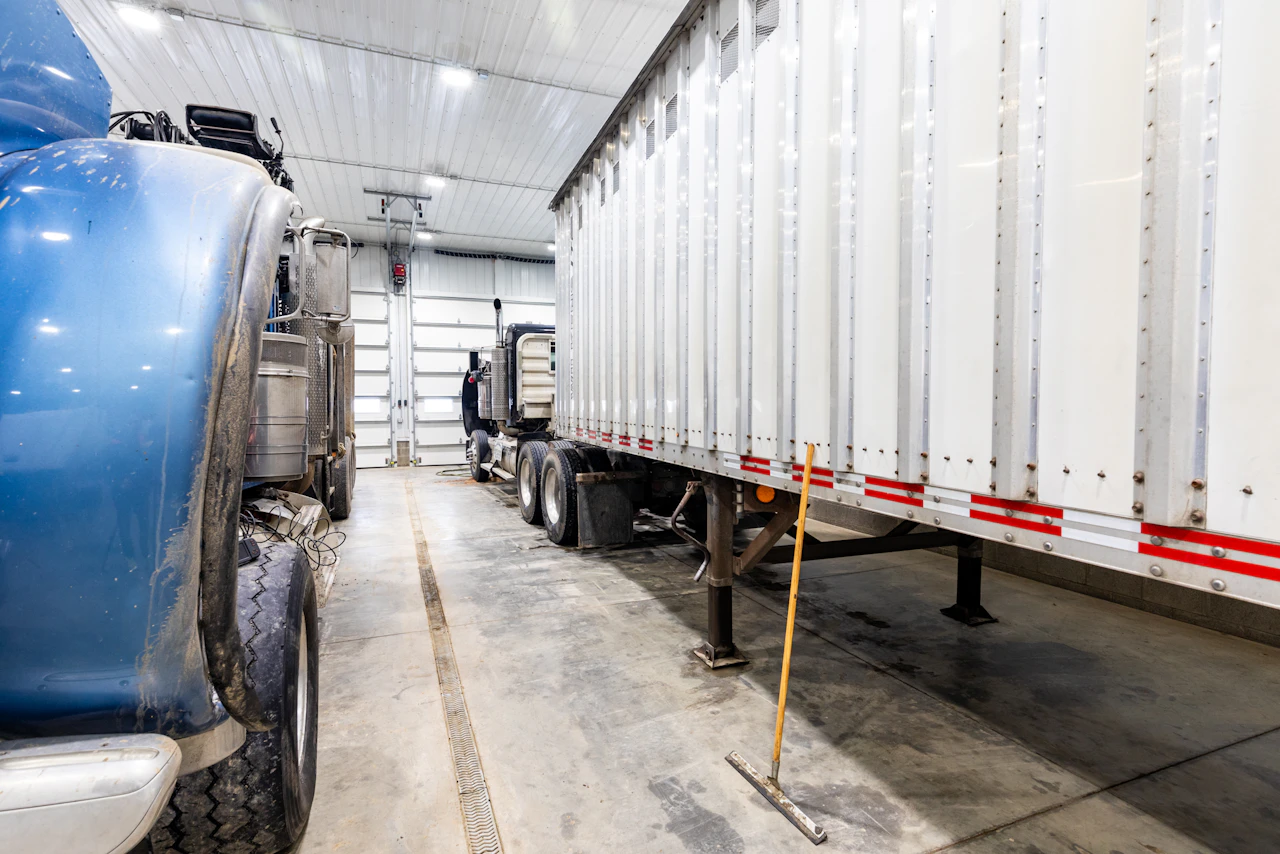What Are the Most Common Causes of Trailer Collisions?
Trailer collisions are rarely random; they’re usually the result of preventable issues. From poor visibility and brake failures to driver error and load imbalance, this breakdown exposes the top causes behind crashes and how to avoid them on the road.

What Are the Most Common Causes of Trailer Collisions?
Trailer collisions are among the most damaging and costly incidents on the road, both in terms of equipment and safety. For drivers and fleet managers alike, understanding the root causes of these collisions is critical. And let’s face it, driving through dense, often chaotic traffic in places like Newark, NJ, isn’t doing anyone any favors.
At George's Truck Trailer and Tire Repair, we’ve seen the aftermath of trailer wrecks far too often, and we know that many of these incidents are avoidable. So let’s break down the most common causes and what you can do to steer clear of disaster.
1. Improper Lane Changes
Let’s start with the classic: the blind lane change. Trailers, especially full-size 53-footers, have significant blind spots. Even with mirrors properly adjusted, there are zones where passenger vehicles disappear. When drivers don’t double-check or signal properly before merging or switching lanes, the risk of a sideswipe collision skyrockets.
Urban areas like Newark make it worse. Constant lane shifting, aggressive drivers, and tight interchanges mean one wrong move can put your trailer into another vehicle or a barrier. It’s not just about looking; it’s about planning each move.
2. Brake Failure or Poor Brake Maintenance
The sheer weight of a fully loaded trailer demands a braking system in perfect working order. Unfortunately, many collisions are caused by inadequate brake performance, often due to worn brake shoes, leaking air lines, or malfunctioning ABS sensors.
When brakes fail or underperform, it dramatically increases stopping distance, especially downhill or in stop-and-go traffic. A late stop can turn into a rear-end crash or jackknife in a heartbeat. Proper inspection of the brake chambers, slack adjusters, and drum assemblies should be part of every PM schedule.
3. Tire Blowouts and Underinflation
Tires are your only connection to the road, yet they’re often the most neglected. Underinflated or overused trailer tires can overheat quickly, especially in summer heat or under heavy load, leading to dangerous blowouts.
A blown trailer tire at highway speed can rip apart the mudflap, damage surrounding traffic, or send the trailer swerving uncontrollably. A five-year-old rubber may look fine, but could be silently brittle and ready to fail.
Routine inspections should include:
- Tread depth checks
- Sidewall inspections for cracking
- PSI verification, especially for dual setups
4. Driver Fatigue and Inattention
Driving a rig takes stamina. Unfortunately, long shifts, inconsistent sleep, and poor diet often leave drivers running on fumes. Fatigue-related collisions are a leading cause of trailer accidents nationwide. A momentary lapse, like veering over the center line or failing to react to a merging car, can turn catastrophic.
Even worse, fatigue affects decision-making. It’s not always about falling asleep at the wheel but about the slower reaction time, tunnel vision, and poor lane judgment. For drivers running through tight NJ corridors like Route 21 or the Turnpike, staying sharp is non-negotiable.
5. Poorly Balanced or Unsecured Loads
It’s what’s inside the trailer that can cause major problems outside. An unbalanced load can shift during braking or turning, throwing off trailer stability. If the weight isn’t evenly distributed from front to back and side to side, the trailer can fishtail, tip, or cause the tractor to lose control.
Likewise, unsecured freight can slide, slam, or tip during sharp turns, impacting steering or braking efficiency. In worst-case scenarios, unsecured loads can even bust through the trailer walls or doors during an impact, creating secondary hazards.
6. Weather Conditions and Slick Roads
Northeast weather doesn’t care about your deadline. Rain, sleet, ice, and even those “just wet enough” fall days can create slick roadways. Trailers, due to their size and weight, are more prone to hydroplaning, rear-end collisions, or jackknifing when traction is compromised.
The fix? Adjust driving speed and increase following distances during inclement weather. Make sure trailer anti-lock brake systems (ABS) are functioning properly, and always perform a walkaround before and after a weather shift.
7. Mechanical Failures and Poor Maintenance
Not all collisions come down to driver error. Mechanical issues like failing kingpins, bent axles, or broken leaf springs can cause instability or catastrophic failure at the wrong moment. Regular PMs and DOT inspections are key to catching these problems before they get you sidelined—or worse, into a collision.
Especially in trailers that are older or have sat unused for a period, small problems like a cracked weld or corroded connector can lead to system-wide failures. Make it a rule to always check:
- Landing gear function
- Electrical harnesses
- Suspension bushings
- Fifth-wheel coupler alignment
Most Common Causes of Trailer Collisions
- Improper lane changes due to blind spots
- Brake system neglect leading to late stops or lockups
- Tire blowouts from wear or underinflation
- Fatigue and driver inattention
- Unbalanced or shifting cargo
- Slippery roads or poor weather adaptation
- Mechanical failures from lack of maintenance
Stay Ahead of Trouble Before It Rolls In
Trailer collisions are often the result of missed warning signs, rushed decisions, or overlooked maintenance. Whether you're an OTR hauler or managing a local fleet in Newark, NJ, staying ahead of these problems is all about diligence.
Regular inspections, sharp driving habits, and timely maintenance can dramatically reduce your risk on the road. And if you suspect your trailer's got an issue, brakes, tires, or suspension, bring it in to George's Truck Trailer and Tire Repair. Better safe now than sorry later. For more information about common truck issues, read our article on why your AC struggles in summer heat.
